Joshua Elkington
Books
A list of books that have been useful to me along the way. You differentiate yourself by the books you read.
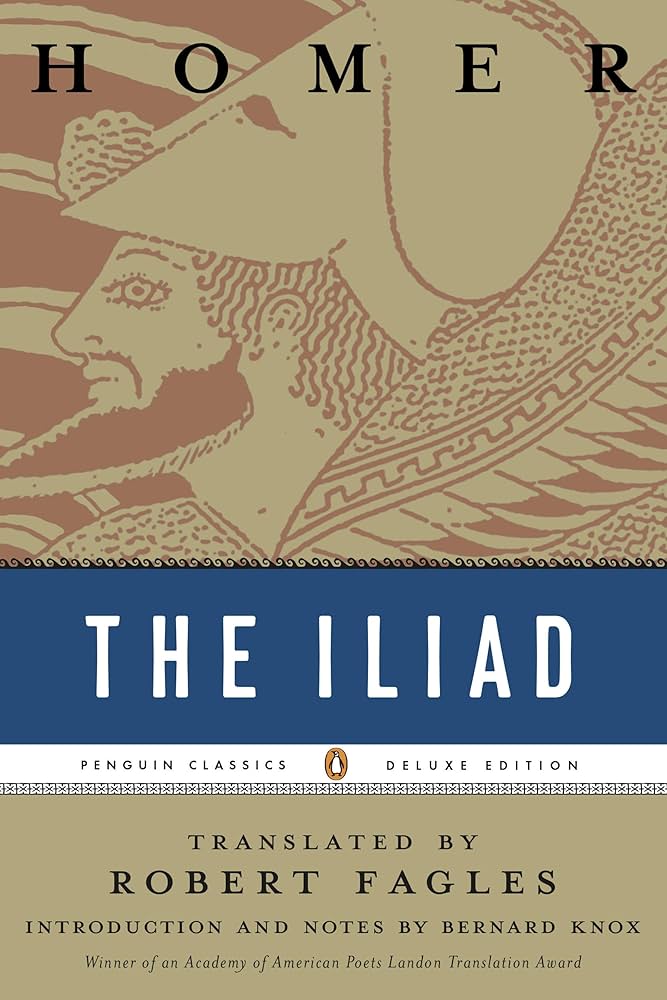 Iliad
Iliad
Homer
A childhood classic. The Iliad is an ancient Greek epic poem that describes key events in the final weeks of the Trojan War, a legendary conflict between the Greeks and the city of Troy. The story centers around the Greek hero Achilles and his rage over losing his war prize, the maiden Briseis, to the Greek leader Agamemnon.
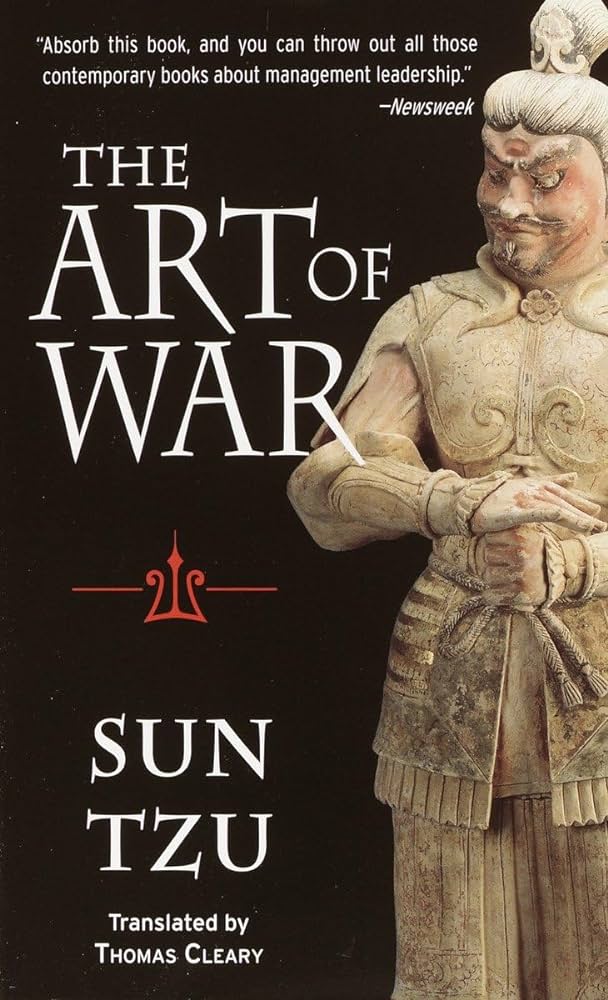 The Art of War
The Art of War
Sun Tzu
Another childhood classic. The Art of War is an ancient Chinese military treatise that dates back to the 5th century BC. It was written by the legendary military strategist Sun Tzu, whose actual name was Sun Wu. Little is known about Sun Tzu's life outside of the writings attributed to him. The text of "The Art of War" is composed of 13 chapters, each dedicated to a particular aspect of warfare strategy and tactics. Despite its age, it has had an enduring impact on both military strategy and global culture over the centuries. The central philosophy underlying Sun Tzu's teachings stresses the importance of positioning, stratagem, leverage, and understanding one's situation relative to the enemy as being preeminent in achieving victory. He advocated subduing opponents without direct conflict wherever possible through means like maneuvering, deception, diplomacy, and disrupting alliances.
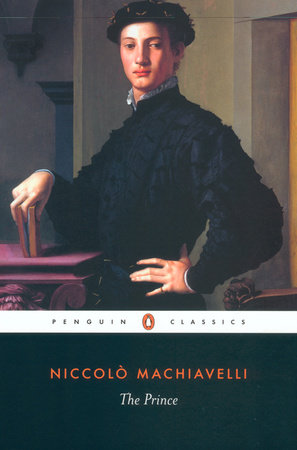 The Prince
The Prince
Niccolò Machiavelli
A third childhood classic. The Prince is a 16th century political treatise by the Italian diplomat and political theorist Niccolò Machiavelli. Believed to have been written around 1513, the work was not formally published until 1532, five years after Machiavelli's death. The book is a famous analysis of the acquisition and keeping of political power. Its tone is straightforward and seemingly amoral, as Machiavelli focuses on practical "realpolitik" rather than idealistic outlooks. This revolutionary perspective on politics made the book controversial in its time. In the treatise, Machiavelli explores different types of princedoms and the characteristics of an effective ruler. He discusses the acquisition of new territories, handling internal insurrection, cultivating a strong military, and the importance of appearing virtuous to the public. Certain chapters provide historical examples to illustrate his philosophical points. While seen as highly pragmatic, "The Prince" was also groundbreaking for viewing politics through a scientific lens rather than from a moral standpoint influenced by the Church. Machiavelli essentially separated politics from ethics and religion.
 Made In America
Made In America
Sam Walton
Made in America is an autobiographical book written by Sam Walton, the founder of Walmart and Sam's Club. It was first published in 1992, a few months before Walton's death in April 1992 at the age of 74. The book chronicles Walton's life journey, from his humble beginnings growing up during the Great Depression in Oklahoma, to his early career as a franchise owner of Ben Franklin variety stores, and ultimately to founding and building Walmart into the retail giant it became. In the book, Walton shares the core philosophies and business principles that guided him in turning a single dime store in Rogers, Arkansas in 1962 into Walmart - the world's largest retailer and chain of discount department stores. Key tenets included delivering value to customers by keeping costs low, empowering employees, building a strong distribution system, and relentlessly driving for the lowest prices. Walton reveals behind-the-scenes stories of how he lead Walmart's growth through strategies like buying entire trucking operations to cut costs, introducing cutting-edge inventory management technology, and rapidly expanding into new markets across America. He also opens up about professional setbacks and challenges overcome along the way.
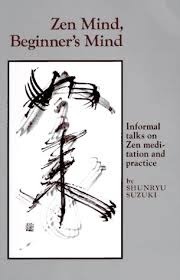 Zen Mind, Beginner's Mind
Zen Mind, Beginner's Mind
Shunryu Suzuki
Zen Mind, Beginner's Mind is one of the most beloved and influential books on Zen Buddhism. It was written by Shunryu Suzuki, a Japanese Zen monk who helped popularize Zen Buddhism in the United States after arriving in San Francisco in 1959. The book is a transcription of a series of informal talks Suzuki gave to his students at the Zen Center in San Francisco and at the Tassajara Zen Mountain Center between 1959-1971. The talks were recorded and later edited into book form by Suzuki's student Trudy Dixon and editor Richard Baker. Published in 1970, the book provides an introduction to the fundamentals of Zen Buddhist practice and teaching through Suzuki's wise and pragmatic approach. With a warm, conversational style, Suzuki imparts lessons on zazen (seated meditation), mindfulness in everyday life, non-duality, and the wisdom of shunryu ("beginner's mind"). While rooted in the Soto school of Japanese Zen Buddhism that Suzuki studied as a monk, the book transcends any one tradition and conveys teachings applicable to anyone interested in Zen or meditation. The book's simple language, humor, and insights have helped bring Zen to a broad Western audience.
 Strategy: A History
Strategy: A History
Lawrence Freedman
Strategy: A History is a monumental work by the renowned military historian Sir Lawrence Freedman. Published in 2013, this comprehensive 700-page book provides an in-depth examination of the evolution of strategic thought and practice throughout human history. In this magnum opus, Freedman traces the origins of strategy from the earliest times of primitive warfare and politics. He explores how strategic thinking developed and adapted across different eras, cultures, and conflicts - from the tactical strategies of ancient Greek and Chinese philosophers to the revolutionary ideas of Clausewitz and the complex nuclear strategies of the Cold War era. Drawing upon a vast array of primary sources spanning over 2,500 years, Freedman illustrates how the use and understanding of strategy has been shaped by factors like advances in military technology, sociopolitical change, and the unfolding intellectual debates within societies. Core strategic concepts like advantage, deception, force, and making/upholding alliances are analyzed across their historical contexts. What sets this book apart is Freedman's interdisciplinary approach. He does not limit his study only to military strategy, but also delves into the strategic aspects of great power diplomacy, business competition, revolutionary movements, and other arenas where strategy is employed. With its unprecedented chronological scope and intellectual rigor, "Strategy: A History" provides profound insights into the multifaceted nature of strategy as both a corporate and an individual phenomena. It has been hugely influential among policymakers, business leaders, and academia alike.
 Shobogenzo
Shobogenzo
Dōgen
The Shobogenzo, which translates as "The Treasury of the True Dharma Eye," is a collection of essays and sermons written by Dogen over a period of nearly 25 years, from 1231 until his death in 1253. It consists of 95 fascicles or chapters, covering a wide range of topics related to Buddhist philosophy, practice, and enlightenment. Dogen began writing the Shobogenzo after returning to Japan from his studies in China, where he had received Dharma transmission from his teacher Rujing, a Chinese Caodong (Soto) Zen master. The work is considered Dogen's masterpiece and the foundational text of the Soto school of Zen Buddhism in Japan. The Shobogenzo is renowned for its depth of insight, poetic language, and unconventional approach to Zen teachings. Dogen often subverts traditional Buddhist concepts and reinterprets them in innovative ways, drawing from his own experiences and realizations. He emphasizes the importance of zazen (seated meditation) and the embodiment of enlightenment in everyday life. Some of the most famous fascicles in the Shobogenzo include "Genjokoan" (The Issue at Hand), which explores the interconnectedness of all things; "Uji" (Being-Time), which delves into the nature of time and existence; and "Bendowa" (On the Endeavor of the Way), which serves as an introduction to Dogen's Zen teachings.
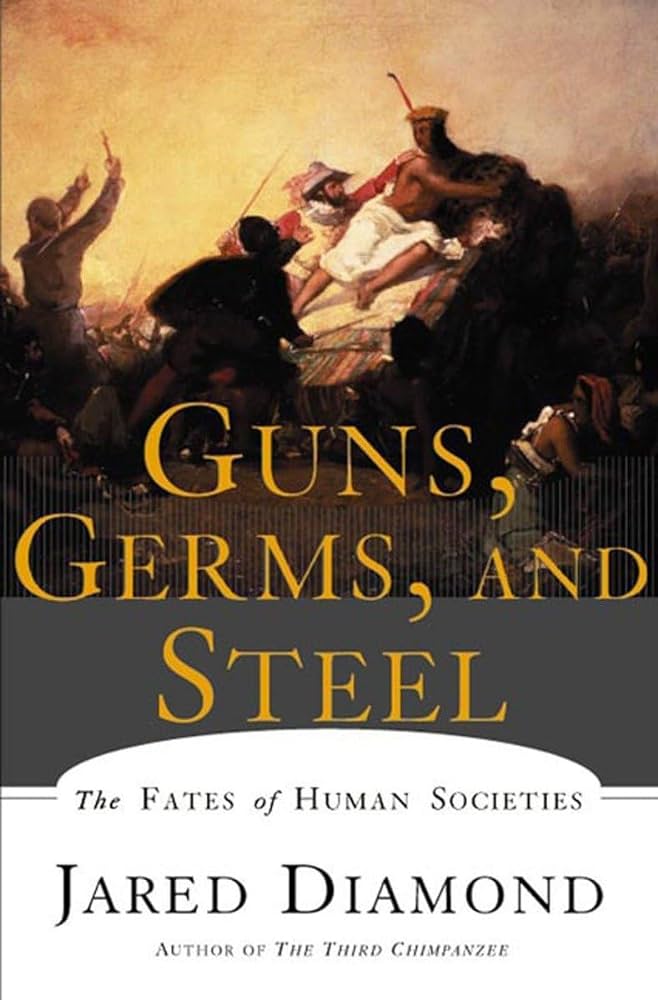 Guns, Germs, and Steel
Guns, Germs, and Steel
Jared Diamond
A book that was laying around as a kid I ended up reading. Guns, Germs, and Steel: The Fates of Human Societies is a study of the earliest human societies, and a rationale for why Eurasian societies became so dominant over societies on other landmasses. The central idea is that the gaps in power and technology between human societies originate primarily from environmental differences, which led to differences in rates and extents of adoption of agriculture, animal domestication, and other key technologies. Diamond argues that societies that had had a head start in developing tools, skills, and centralized organization inevitably dominated societies that had started developing these characteristics later. The book was released to a wide critical acclaim, winning the Pulitzer Prize for non-fiction and the Aventis Prize for Best Science Book in 1998. It has been translated into 36 languages, selling over a million copies worldwide. The book laid a foundation for a multi-disciplinary study to understand the development of human societies, combining anthropology, biology, genetics, linguistics, and sociology.
 Vimalakirti Sutra
Vimalakirti Sutra
Vimalakīrti
The Vimalakirti Sutra is a Mahayana Buddhist sutra. The sutra takes the form of a narrative regarding a discussion between the lay person Vimalakīrti and the Buddhist arhats and bodhisattvas, including Manjusri. It portrays the wisdom and skill of the layman Vimalakīrti in presenting the Buddhist teachings. The text is set in the city of Vaishali during the time of the Buddha Shakyamuni. Vimalakīrti feigns illness, and when various spiritual figures come to visit him, he embarks on a series of teachings upholding the principle of non-duality and the importance of understanding ultimate reality directly without relying on words or concepts. Through paradoxical statements and stories, Vimalakīrti deconstructs the dualistic conceptions of the visitors, leading them to a deeper understanding of the emptiness of all phenomena and the illusory nature of speech and judgments. His teachings emphasize that true awakening comes from directly realizing the non-dual nature of existence. The sutra promotes the Mahayana view that enlightenment is accessible to both monastics and laypeople. It elevates the status of the spiritually-accomplished lay practitioner while also exhorting monastics to avoid pride and go beyond attachment to rules and rites.
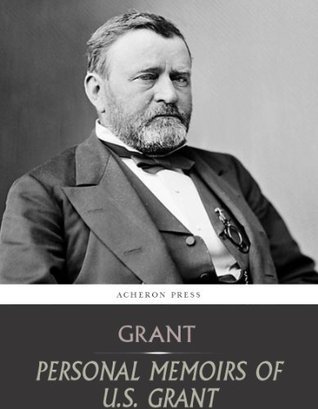 Personal Memoirs of U. S. Grant
Personal Memoirs of U. S. Grant
Ulysses S. Grant
Written in a style we should all aspire to. And written with a righteous mission to support his family. The Personal Memoirs of U.S. Grant is an autobiography by Ulysses S. Grant, the 18th President of the United States, focused on his life up through the end of the American Civil War for which he was the final commanding Union general. The two-volume set was published in 1885-86 by Mark Twain, shortly after Grant's death. Twain promoted the books through an innovative direct mail campaign for subscription book sales. The memoirs were a critical and commercial success, being recognized as one of the finest examples of American autobiography. Grant worked on the memoirs with a sense of urgency to provide financial security for his family, as he had lost his life savings through bad investments and was dying of throat cancer. He completed the book just a few days before his death in 1885 at the age of 63. The memoirs cover Grant's childhood, his education at West Point, his service in the Mexican-American War, and his experiences leading the Union armies during the Civil War, including the battles of Shiloh, Vicksburg, Chattanooga, the Wilderness, and the Siege of Petersburg. Grant wrote with a simple and direct style, providing detailed battle descriptions and candid analysis of his decisions and mistakes.